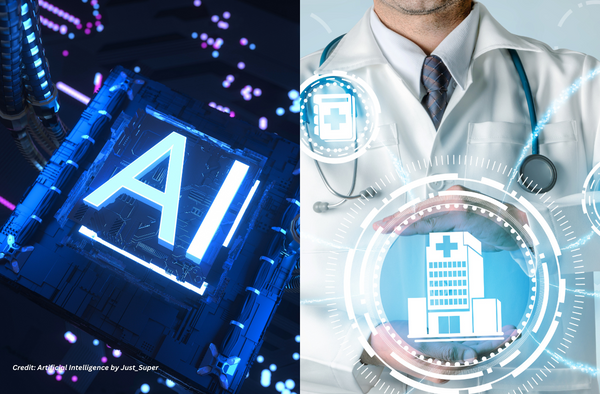AI driving healthcare transformation
Share

By Regional Vice President of Cloudera ANZ, Keir Garrett
In a world where data has become the lifeblood of innovation and progress, there is one realm where its significance shines brighter than ever—health care. Health data, when harnessed effectively, becomes a powerful ally in the pursuit of better patient outcomes. And it’s not just about crunching numbers and creating charts; it’s about translating vast volumes of information into meaningful insights that can bring hope to millions and even save lives.
Leveraging this data, acting on it, and yielding results requires organisations to have access to all their data, regardless of whether the data resides in the cloud or an on-premise data centre. Artificial intelligence (AI), generative AI (GenAI), and machine learning (ML) are crucial to a successful data-driven health program. These tools are being integrated into healthcare systems across Australia and New Zealand, and they are bringing about critical benefits for patients and healthcare providers alike.
AU and NZ recognise necessity of digitisation
The ability to leverage advanced, data-driven solutions using AI and the cloud will empower the healthcare workforce as challenges related to supporting an ageing population and labour shortage loom in the near future.
As highlighted by Deloitte, Australia’s population is estimated to reach 35.9 million by 2050, with the proportion of people aged over 65 increasing by 6% to reach just under a quarter (22%) of the population. At the same time, the workforce participation rate is expected to decline from 66% to 64%. According to the analysts, this combination has the potential to have a catalytic effect on the healthcare system and workers, unless something is done to support staff and facilities.
While initially hindered by restrictive budgets and legacy systems, the COVID-19 pandemic proved to ramp up the urgency of digitisation and kick-started several digital healthcare initiatives. Integrating technology solutions into urgent care centres and implementing virtual care programmes showcased how digitisation enabled organisations to cater to pressing healthcare needs.
As a result, healthcare IT budgets have increased, with spending focused on enabling a flexible model of patient support—and just in time, with an ageing population calling for greater medical care. As AI and hybrid cloud adoption continue to advance and more use cases become apparent, healthcare providers will be looking to invest.
AI-powered algorithms spot problems, save lives
Using AI-powered algorithms, doctors can now detect diseases earlier by analysing large volumes of patient data, from medical history to laboratory results and imaging scans. Accelerated by the cloud, this early diagnosis service allows healthcare professionals to intervene promptly and provide personalised treatment plans built using ML, leading to better patient outcomes and more lives saved.
Medical imaging has undergone a revolution, all thanks to AI and the cloud. Advanced algorithms can now interpret X-rays, MRIs, and CT scans with astonishing accuracy and speed, helping radiologists across Asia identify potential health risks more efficiently. ML models can also identify subtle patterns that may be difficult for human eyes to detect, leading to faster and more precise diagnoses, quicker treatments, and improved patient care.
New Zealand recognised the potential of AI way back in 2018 when Dunedin company Docs created the world’s first AI medical system for Medicmind, which was designed for medical researchers and clinicians to create AI to auto-diagnose a large range of diseases based on a single photograph. Fast forward to October 2022, and The AI Forum NZ attested that AI technology will help to support the care of an ageing population through faster, more effective diagnoses, as well as building trust and improved outcomes for patients and their communities.
With AI-based predictive analytics, healthcare providers can forecast patient outcomes based on historical data. Armed with this information, doctors can create more effective treatment plans tailored to each patient’s unique needs, resulting in improved care and better recovery rates.
AI for remote and inclusive care
For patients in remote or underserved areas, AI brings hope. Remote patient monitoring becomes a reality with wearable devices equipped with AI algorithms connected to the cloud using IoT technology. These smart devices track vital signs, detect anomalies, and alert medical professionals in real time, ensuring timely interventions and reducing the risk of complications.
Cloud-based AI-powered virtual health assistants and chatbots have also become increasingly popular throughout the ANZ region. Recently released solutions can provide 24/7 support, answer common medical questions, and even offer basic triage services on the cloud. This eases the burden on healthcare facilities and ensures patients have access to medical care whenever and wherever they need it.
For instance, Australian hospitals are trialling ChatGPT AI to help track performance metrics, such as how long high-risk patients need to wait before being screened. The Nepean Blue Mountains Local Health District (NBMHD), in collaboration with the Visual Telehealth Lab at the University of Sydney, is testing using AI to remotely monitor patients’ vital signs during standard telehealth appointments, collating important data points to build a clearer picture of the symptoms.
The rise of GenAI in health care
GenAI offers invaluable assistance to healthcare professionals by enabling them to interpret a patient’s data more effectively, including their medical history, imaging records, genomics, or laboratory results. With a simple query on a large language model (LLM), much like ChatGPT, GenAI can rapidly deliver the data that clinicians need, even if it’s stored in various formats and locations, helping healthcare providers quickly gain a better understanding of a patient’s health. This also streamlines the decision-making process and empowers medical experts to provide more efficient and accurate care to their patients.
One of the most significant advances in GenAI is the technology’s ability to produce synthetic data, including medical images. This synthetic data is invaluable as it enhances the training process by expanding the content and data used for research and medical training. By generating diverse and realistic data and images, GenAI also helps develop more effective ML models, benefiting research and healthcare training.
Security and privacy of healthcare data
Medical data is, like financial data, extremely precious to us all and must be secured at all costs. This means AI implementations must adhere to strict ethical standards to earn and maintain public trust. Unsurprisingly, a crucial aspect of ANZ’s health care’s technological advancement is data governance and security. Fortunately, healthcare providers in the region are prioritising patient confidence through robust data governance strategies that meet ever-evolving security requirements imposed by regulating agencies, governments, industries, and the general public.
Amid all the wonders of data-driven, intelligent health care, one constant remains: the human touch. Behind every data point and predictive model stand compassionate healthcare providers who embrace data not as a replacement for their intuition and empathy but as a complement to their healing instincts. Democratising the latest AI solutions is central to helping these heroes thrive.
Keir Garrett
Keir Garrett is a seasoned executive with over 20 years of leadership and strategic consulting experience, backed by a strong financial background and a passion for digital transformation. With a successful track record at organisations like SAP, Microsoft, and Datacom, she excels at driving business value and global expansion through innovation and strategic planning. Keir's goals include fostering mutual success and satisfaction while aspiring to be a great leader who empowers others to achieve their growth aspirations.











Today’s Pick
11th Annual Aus Goverment Data Summit
April 1, 2025
7th Annual NZ Government Data Summit
May 7, 2025
3rd Public Sector Comms Week
May 14, 2025
Subscribe
We send emails,
but we do not spam
Join our mailing list to be on the front lines of healthcare , get exclusive content, and promos.
AI appointment Australia Australian boost boosts business businesses covid-19 cyber cyber attack cybersecurity cyber security data data breach data management defence Digital employment enhance enhances fraud funding governance government grants infrastructure Innovation Lockdown management new zealand NSW NZ online privacy public Public Sector queensland renewable energy scams security Social Media Technology telecommunications victoria
-

Understanding and building your digital strategy
Digital Government, Opinion
-

Featured Leader: Jamie Morse on multi-channel strategies for communication
Communications, Featured Leader
-

Featured Leader: Tegan Tembe of NSW Treasury on creating solid planning strategies and processes
Featured Leader
-

Wirraka Maya Health Service improves patient care with My Health Record
Learning
Show More-

Effects of ineffective communication in the workplace
Communications, Personal Development
-

7 ways you can enhance your personal development skills
News, Personal Development
-

5 advantages of working in the public sector
News, Personal Development, Professional Development
-

7 causes of communication issues in the workplace
Communications, News, Personal Development
Show MoreLast Viewed